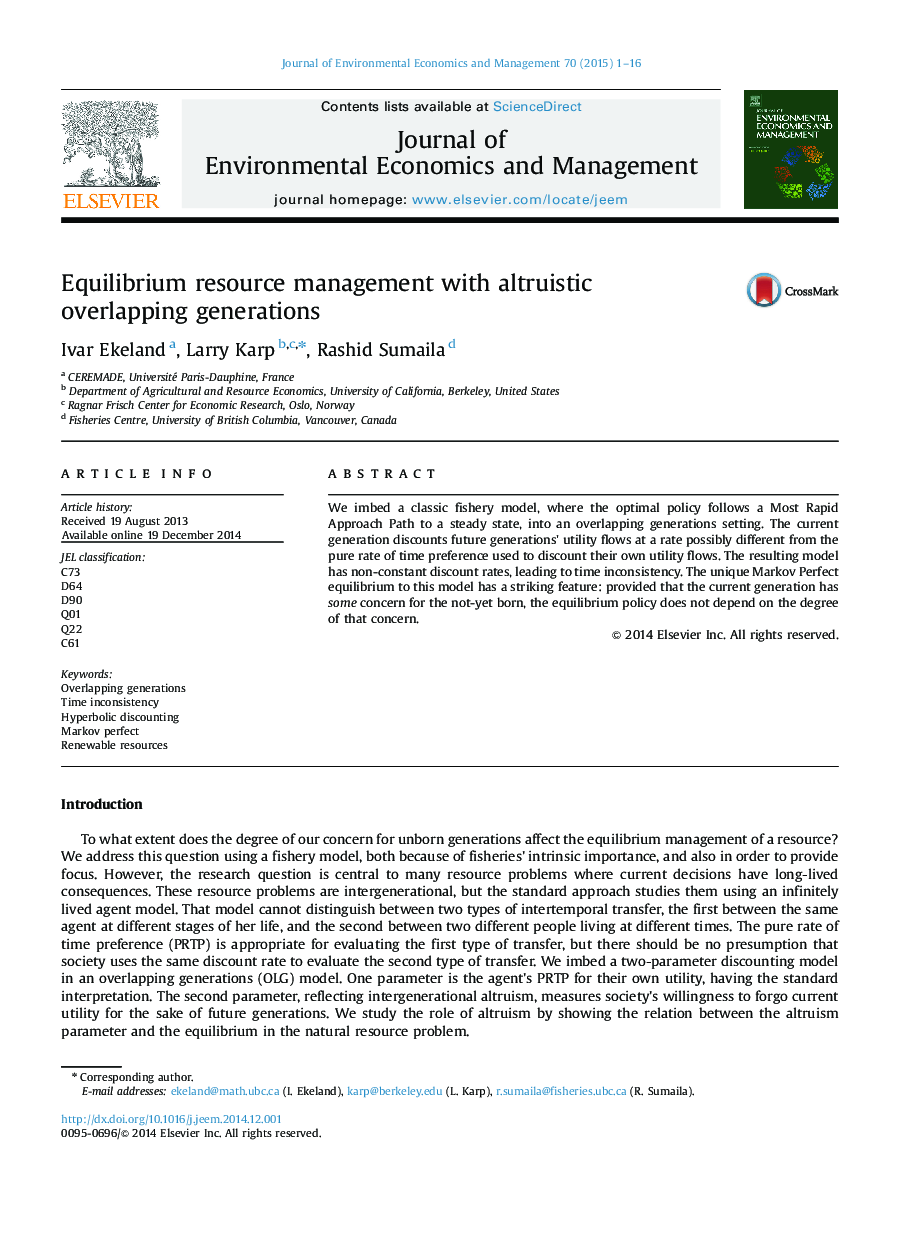| Article ID | Journal | Published Year | Pages | File Type |
|---|---|---|---|---|
| 958879 | Journal of Environmental Economics and Management | 2015 | 16 Pages |
Abstract
We imbed a classic fishery model, where the optimal policy follows a Most Rapid Approach Path to a steady state, into an overlapping generations setting. The current generation discounts future generations׳ utility flows at a rate possibly different from the pure rate of time preference used to discount their own utility flows. The resulting model has non-constant discount rates, leading to time inconsistency. The unique Markov Perfect equilibrium to this model has a striking feature: provided that the current generation has some concern for the not-yet born, the equilibrium policy does not depend on the degree of that concern.
Related Topics
Social Sciences and Humanities
Economics, Econometrics and Finance
Economics and Econometrics
Authors
Ivar Ekeland, Larry Karp, Rashid Sumaila,
